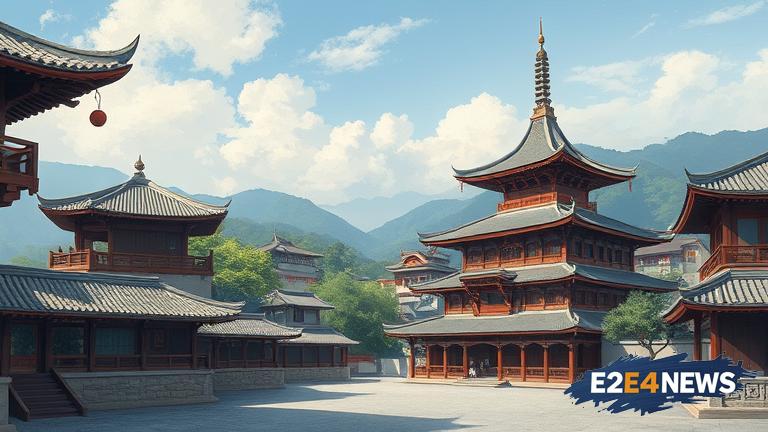Taiwan’s cultural scene is a vibrant and dynamic entity, shaped by its complex history and geography. The island nation has a unique cultural identity that is a blend of traditional and modern arts, with influences from indigenous tribes, Chinese immigrants, and foreign colonizers. The country’s rich cultural heritage is reflected in its various art forms, including music, dance, theater, and visual arts. Traditional Taiwanese arts, such as puppet shows and folk music, continue to thrive alongside modern forms of expression, like contemporary dance and installation art. The National Palace Museum in Taipei is home to one of the largest collections of Chinese art and artifacts in the world, including the famous Jadeite Cabbage sculpture. The museum’s collection provides a glimpse into Taiwan’s rich cultural past and its significance in the development of Chinese art and culture. In addition to its traditional arts, Taiwan is also known for its modern cultural scene, with a thriving music industry and a number of notable festivals, including the Taipei Golden Horse Film Festival and the Taiwan International Festival of Arts. The country’s cultural landscape is also shaped by its indigenous tribes, who have a distinct cultural identity and traditional practices. The Amis, Atayal, and Paiwan tribes are among the many indigenous groups that have contributed to Taiwan’s rich cultural diversity. Taiwan’s cultural heritage is not limited to its arts and traditions, but also extends to its cuisine, with popular dishes like beef noodle soup and stinky tofu. The country’s night markets, such as the Shilin Night Market in Taipei, are a testament to its vibrant food culture and offer a wide range of street food and local specialties. Taiwan’s cultural scene is also influenced by its history, with many historical sites and landmarks, such as the Longshan Temple and the Chiang Kai-shek Memorial Hall, providing a glimpse into the country’s complex past. The country’s cultural identity is a reflection of its history, geography, and cultural exchange, with a unique blend of traditional and modern elements. Taiwan’s cultural heritage is an important part of its national identity and is celebrated through various festivals and events throughout the year. The country’s cultural scene is also supported by its government, with initiatives to promote and preserve its cultural heritage, including the establishment of cultural centers and museums. In recent years, Taiwan has also become a hub for cultural exchange, with many international artists and performers visiting the country to showcase their work. The country’s cultural diversity and creativity have made it an attractive destination for tourists and artists alike, with many opportunities for cultural exchange and collaboration. Taiwan’s rich cultural heritage is a valuable asset, and efforts are being made to preserve and promote it, both locally and internationally. The country’s cultural scene is a reflection of its history, geography, and cultural exchange, and its unique blend of traditional and modern elements makes it a fascinating and dynamic entity. With its vibrant cultural landscape, rich cultural heritage, and diverse influences, Taiwan is a country that has something to offer for everyone, from traditional arts and culture to modern forms of expression and cultural exchange.
